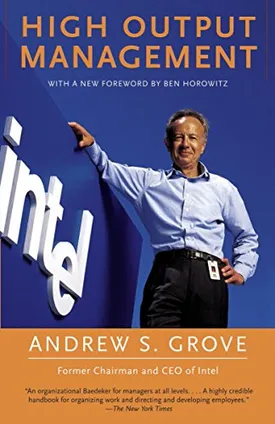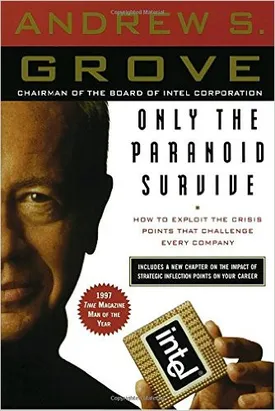Andrew Grove
Andrew Grove was an acclaimed technologist, electrical engineer, and one of the most influential business leaders of the 20th century. Born András Gróf in 1936 in Hungary, his early years were marked by tragedy and hardship. When the Nazi's invaded Hungary in 1944, Grove and his family were deported to the Auschwitz Concentration Camp. After escaping the camp and surviving two years in a Hungarian labor camp, Grove and his family emigrated to the United States in 1956, starting off with a job at a water heater factory in Newark, NJ.
It was this grueling and difficult beginning however, that inspired Grove to go big. After working in the factory from 1956-1960, Grove attended nearby City College of New York, where he earned a Bachelor of Science (B.S.) degree in 1964. In 1967 Grove achieved a Doctor of Philosophy (Ph.D.) degree in Chemical Engineering from the University of California, Berkeley, eventually becoming their professor of engineering and management. He invented the technology behind static random-access memory, or SRAM and wrote textbooks on operating system design.
Then in 1968, Grove joined Intel as its 3rd employee and 8th engineer. Grove began as an engineer and soon became Intel’s first employee-manager and in 1979, he became Intel’s President. During his tenure as President and later CEO, Grove helped shape Intel into what it is today as one of the world’s leading and most profitable computer chip manufacturers. Under Grove’s leadership, Intel launched the ‘Intel Inside’ marketing campaign in 1991, which became Intel’s best-known brand. In addition, Grove ushered in and promoted the ‘tick-tock theory’, where Intel would strive to release a new processor innovation every two years.
Grove also became one of the most recognized writers and business strategists of the 20th century, earning him Time Magazine's Man of the Year in 1997 and numerous other awards. He wrote two books, High Output Management in 1983 and Only the Paranoid Survive in 1996, both of which were instant classics and remain relevant to this day.
High Output Management is a classical business book that reveals how good managers influence the productivity of individuals and teams. This book covers how to delegate tasks, increase worker motivation and responsibility, streamline processes and methods for addressing difficult people. Through this book, managers learn the most important skill in the workplace: craftsmanship.
Meanwhile, in Only the Paranoid Survive: How to Exploit the Crisis Points That Challenge Every Company, Grove describes how a company can survive dynamic environments of ever-changing technological demands. He focuses on the notion of a ‘strategic inflection point’ - a time of great upheaval in the industry that demands rapid transformation in order to stay competitive. He also explains the need for companies to be constantly attentive, vigilant and aware of the environment. Through stories from his own experience, he illustrated basic principles that any company should understand when facing crucial decisions in its lifetime.
In addition, Grove also wrote articles, guest edited magazines and shared his knowledge by speaking to many high tech gatherings. With his expertise and enthusiasm, some of the world’s biggest technology companies were able to thrive and he was greatly respected in the tech world.
Sadly, Andrew Grove passed away in 2016 at the age of 79 but his legacy remains strong. His true legacy however is not just in the technological innovations he created, or the impact he had on Intel. It would be his writings and teachings, that shaped the minds of today’s leaders and community members. Through these books, articles and teachings, he left an incredible legacy that will remain well into the future.


